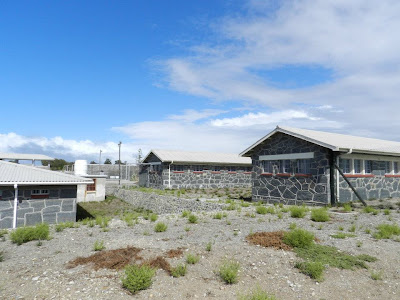I am coming to the end of my time here, as I leave and move on elsewhere on the 4th of May. Due to how many bank holidays there are here, I had a couple of my last sports sessions this week, in Hillside on Monday and Iraq on Tuesday. Sport has been the highlight of my days here and the idea of leaving it behind is pretty heart breaking. More and more I have seen how amazing a way it is to break down cultural, linguistic and emotional barriers between us (as volunteers) and the children in the community here. Sport is universal, in that you can speak a completely different language to someone and feel like your lives are worlds apart, but still build up a relationship and have fun with them, simply by playing a game.
Playing sport has also been vital in teaching the children basic life skills. I felt bowled over at how much love the children here are willing to give if you show them that attention and kindness. Their want for human contact and interaction is both touching and poignant: you can give a child a pat on the pack or a hug and they will be hanging off your arm for the rest of the session. Giving them that time, teaching them those sports skills and just having fun together means more to them than I ever could have imagined when I started here. In those simple ways we have built a trust and a real friendship with the children, which has thus allowed us to capture their attention, gain their respect and able to teach them vital lessons.
...This week we had to tackle the complex theme of purity, protecting your body and awareness of HIV/Aids. Working with the girls especially, in some of the communities, you become aware that maybe certain of them have suffered some abuse - they are often more withdrawn and, as opposed to others who throw their arms around you, human contact is not as comfortable for them. On Monday, along with one of the Dutch sports students, we took the girls aside at the end of the session and tried to broach this subject, very aware of its sensitivity. At the sports meeting last week, we'd discussed the idea of asking them about things in their lives that hold value to them and that they look after. One of the mentors suggested school uniform - surprising to us - but children here take immense pride in their uniform, as it is a means of gaining an education (it costs money that many of them do not have, and yet they cannot attend school without it).We used this to discuss how, just as we protect and guard things that are important to us, it is just as important to guard and protect our bodies from harm.
We also utilised the idea of a traffic light system - in that it is ok for people to touch your arms, head, lower legs (green); it is ok for people to touch your upper body, hugging for instance, BUT only if you trust that person (orange); and finally that it is not ok for people to touch your lower body without consent or if it makes them uncomfortable. Understandably, they were were all a little shy in response to the teaching, but they were also attentive, and serious about the topic. I could tell they understood and were taking in everything we were saying and when we asked questions they responded in the right way. The sessions since them have been the same, with a reluctance to talk about it with us, understandably, but a strong understanding and recognition of the importance of what we were telling them.
Teaching this topic has made me reevaluate how lucky I am to be in my situation - I have never felt, in my community, that my safety is under threat and I feel completely secure in the things that I want and able to say no to the things that make me uncomfortable. I have never really considered it being otherwise and the thought makes me both upset, for the children I have come to know so well, but also angry at what they have to struggle against. It is not just losing the relationship I have built with them that is going to be hard when leaving, but also the sense that I am turning away from their struggles and returning to my world of relative safety - a safety that I never again want to take for granted.



































